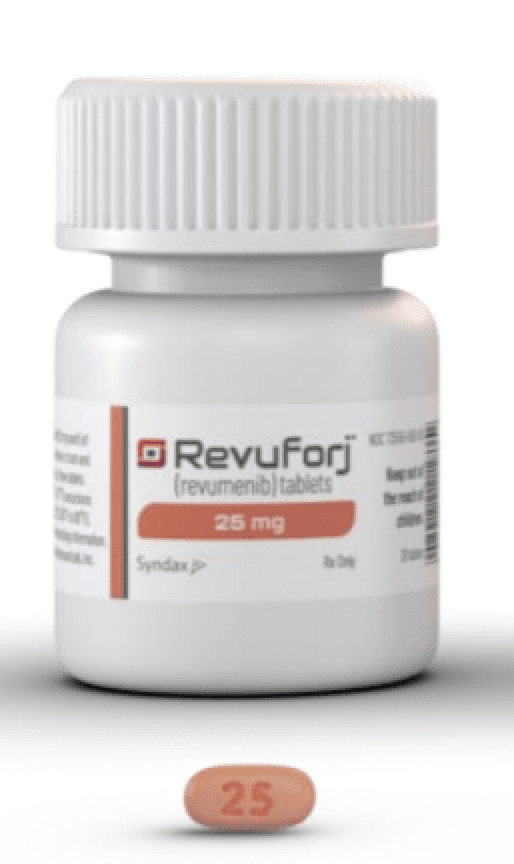Revumenib Disease Interactions
There are 2 disease interactions with revumenib.
Revumenib (applies to revumenib) liver/renal dysfunction
Moderate Potential Hazard, Moderate plausibility. Applicable conditions: Liver Disease
Revumenib has not been studied in patients with severe liver or renal impairment.
Revumenib (applies to revumenib) prolonged QT interval
Moderate Potential Hazard, Moderate plausibility. Applicable conditions: Long QT Syndrome, Congestive Heart Failure, Hypokalemia, Magnesium Imbalance, Arrhythmias
Revumenib can cause QTc interval prolongation. Correct electrolyte imbalances such as hypokalemia and hypomagnesemia, prior to treatment, and perform a baseline ECG. This drug should not be initiated in patients with QTcF greater than 450 msec. Monitor with ECG during treatment (once a week during the first 4 weeks and then monthly). More frequent ECG monitoring may be necessary in patients with congenital long QTc syndrome, congestive heart failure, electrolyte abnormalities, or those taking other medications that can prolong the QTc interval.
Switch to professional interaction data
Revumenib drug interactions
There are 563 drug interactions with revumenib.
Revumenib alcohol/food interactions
There is 1 alcohol/food interaction with revumenib.
More about revumenib
- revumenib consumer information
- Check interactions
- Compare alternatives
- Side effects
- Dosage information
- During pregnancy
- Drug class: miscellaneous antineoplastics
- Breastfeeding
- En español
Related treatment guides
Drug Interaction Classification
| Highly clinically significant. Avoid combinations; the risk of the interaction outweighs the benefit. | |
| Moderately clinically significant. Usually avoid combinations; use it only under special circumstances. | |
| Minimally clinically significant. Minimize risk; assess risk and consider an alternative drug, take steps to circumvent the interaction risk and/or institute a monitoring plan. | |
| No interaction information available. |
See also:
Further information
Always consult your healthcare provider to ensure the information displayed on this page applies to your personal circumstances.


